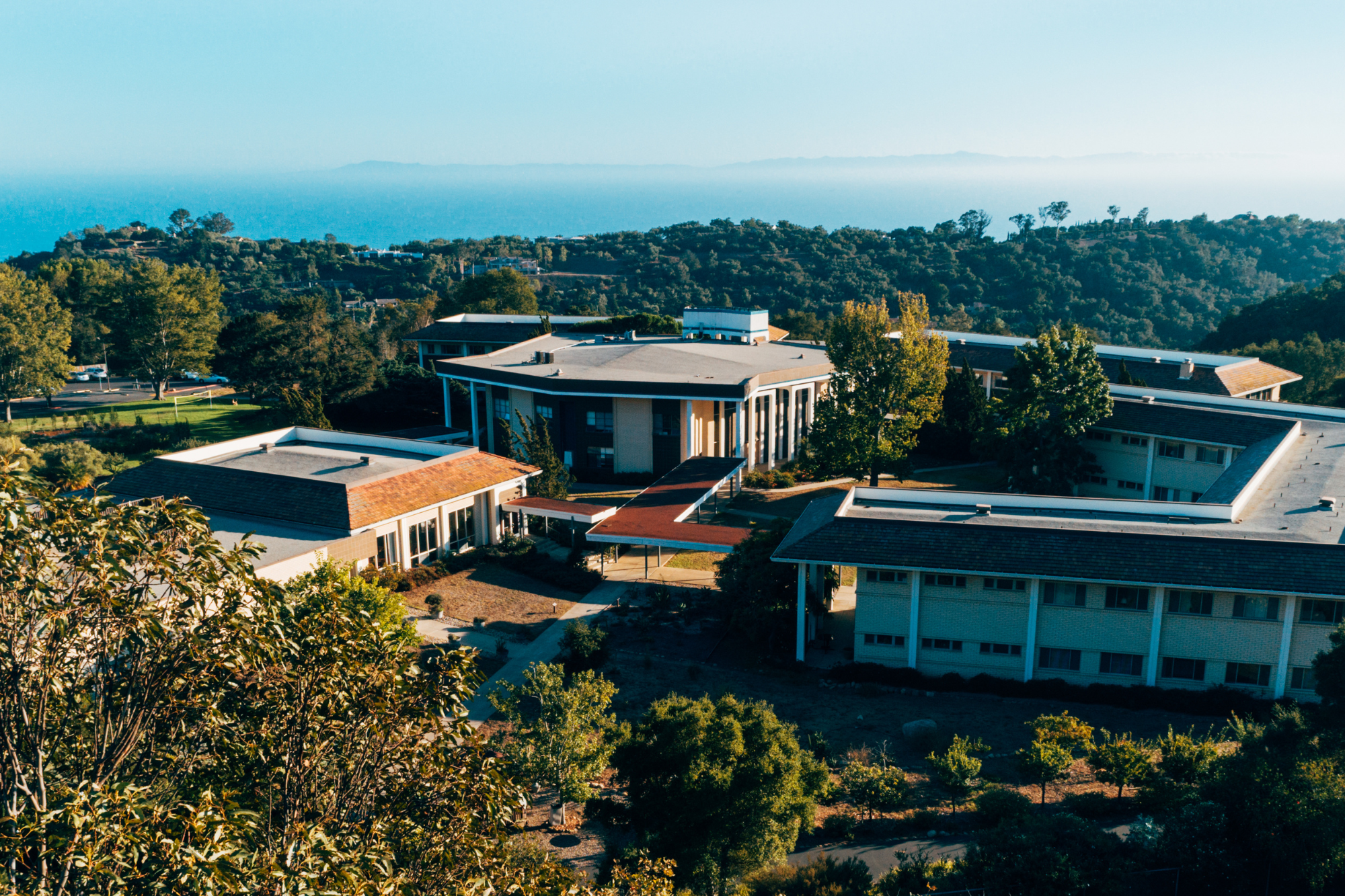Introducing Our Esteemed Program Chairs at Pacifica Graduate Institute.
At Pacifica Graduate Institute, we are privileged to have a distinguished group of Program Chairs who lead our renowned graduate degree programs with expertise, vision, and a deep commitment to the exploration of depth psychology, mythology and the humanities. Get to know our esteemed Program Chairs and discover the wealth of knowledge and experience they bring to their respective fields.
M.A./Psy.D. Counseling Psychology:

Matthew Bennett
Department Co-Chair and Core Faculty, Pacifica Graduate Institute Counseling Psychology Department
Matthew is a licensed psychologist, lecturer, and administrator with experience in public sector mental health and substance abuse treatment. He has broad experience in program development. He was formerly founder and first Director of Training for the Ventura County Behavioral Health Pre-Doctoral Internship in Clinical Psychology and Chair-Elect of the Psychology Department at Ventura County Medical Center in Ventura, California. His research interests include personality disorders, comparative personality theory, and internet applications for mental health. Dr. Bennett is also a returned Peace Corps volunteer (“Poland III, 1991-1993”).
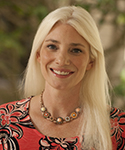
Jemma Elliot
Department Co-Chair and Core Faculty, Pacifica Graduate Institute Counseling Psychology Department
Jemma Elliot, MA, LMFT, LPCC, is Department Co-Chair and Core Faculty for Pacifica Graduate Institute’s Counseling Psychology Department. She supports administrative, curricular, and developmental aspects of the MA and PsyD Counseling Psychology programs, teaches in the MA program, and is a passionate contributor to faculty governance. Jemma has a clinical focus on adoption and separation trauma, and has provided trainings and spoken on panels to advance the understanding of the needs of children and families on the adoption spectrum throughout California. She also has a special interest in working with PTSD from a depth psychological perspective, and in witnessing and hosting the extrasensory gifts and energetic awakenings that often arise in clients after traumatic experiences. Jemma is a Clinical Member of the California Association for Marriage and Family Therapists. She has a great love for the arts, and is a long-time advocate for farmed animal and greyhound rescue and rehabilitation.
M.A./Ph.D. Program in Depth Psychology with Specialization in Community, Liberation, Indigenous, and Eco-Psychologies:
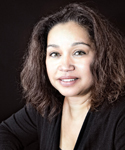
Susan James
Department Chair and Core Faculty, Pacifica Graduate Institute
Susan James is member of the core faculty at Pacifica Graduate Institute, and co-chair of the Community, Liberation, Indigenous, and Eco-Psychologies specialization of the M.A./Ph.D. program in Depth Psychology. Her work has focused on structural violence, transnational African spiritualities as resistance and innovation, visual design methodologies and research communication strategies. Her journal publications include American Journal of Community Psychology, Violence Against Women, and Women and Therapy. Susan earned a Ph.D. in Community Psychology from New York University, and has held faculty and senior research positions with various academic institutions and a national think tank.
M.A./Ph.D. in Depth Psychology with Specialization in Jungian Psychology and Archetypal Studies:

Glen Slater
Department Co-Chair and Core Faculty, Pacifica Graduate Institute
Glen studied psychology and comparative religion at The University of Sydney before coming to the United States in 1992 for doctoral work in clinical psychology. He has been teaching at Pacifica for over twenty years and is currently the Associate Chair of the Jungian and Archetypal Studies specialization. He also teaches in the Mythological Studies program. His publications have appeared in a number of Jungian journals and essay collections, and he edited and introduced the third volume of James Hillman’s Uniform Edition, Senex and Puer, as well as a collection of faculty writings, Varieties of Mythic Experience: Essays on Religion, Psyche and Culture. Beyond his work in Jungian and Archetypal Psychology, he writes on psyche and film as well as the psychology of technology. He lectures internationally in these areas of interest. Courses Taught in the Jungian and Archetypal Studies Specialization: Jungian Psychology: The Individuation Journey; Archetypal Psychology; Reflective Studies I; Reflective Studies II.
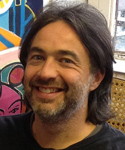
Keiron Le Grice
Department C0-Chair and Core Faculty, Pacifica Graduate Institute
Keiron is Core Faculty and Chair of the Jungian and Archetypal Studies specialization of the Depth Psychology program at Pacifica. He was educated at the University of Leeds, England (B.A. honors Philosophy and Psychology) and the California Institute of Integral Studies in San Francisco (M.A. and Ph.D. Philosophy and Religion). He is the author of four books including The Archetypal Cosmos: Rediscovering the Gods in Myth, Science, and Astrology, The Rebirth of the Hero: Mythology as a Guide to Spiritual Transformation, and Archetypal Reflections: Insights and Ideas from Jungian Psychology. A founding editor of Archai: The Journal of Archetypal Cosmology, Dr. Le Grice now serves as Senior Editorial Advisor at Archai and as commissioning editor for Muswell Hill Press in London. Courses Taught in the Jungian and Archetypal Studies Specialization: Archetypes: Universal Patterns of the Psyche; Synchronicity and the New Sciences; Alchemy of Transformation; Introduction to Depth Psychology.
M.A. Depth Psychology and Creativity with Emphasis in the Arts and Humanities:

Mary Antonia Wood
Department Chair and Core Faculty, Pacifica Graduate Institute
Mary Antonia Wood is Chair of the M.A. in Depth Psychology and Creativity with Emphasis in the Arts and Humanities program, and the owner of Talisman Creative Mentoring, a practice that supports artists and creators of all types. Through one-on-one consultations, group workshops and classes, Wood assists creative individuals who desire a stronger and more authentic connection to the deepest archetypal sources of creativity. Wood has been a visual artist for over thirty years, working in a variety of media. Her work has been featured in numerous solo and group exhibitions and has been collected by both public institutions and individuals. In addition, she has collaborated with writers and artists on public art commissions and presents frequent talks and workshops at Jungian societies around the US. Her book, The Archetypal Artist: Reimagining Creativity and the Call to Create is due for release from Routledge in 2022. Wood teaches a variety of classes in DCH, including Creativity and Aesthetic Sensibility, The Purpose and Power of Image, The Complex Nature of Inspiration, and Project Workshop I and II (program capstone courses). She has also served as Co-Chair of DJA (Depth Psychology with Specialization in Jungian and Archetypal studies) and co-taught The Soul’s Code in that program.
M.A./Ph.D. Clinical Psychology:

Peter T. Dunlap
Department Chair and Core Faculty, Pacifica Graduate Institute
Peter T. Dunlap is a psychologist working in private and political practice. He is engaged in research at the interface between Jung’s thinking about the role of the psychological attitude in the future transformations of the human species, systems-centered group theory and practice, and emotion-focused psychotherapy for individuals and groups. He leads a weekly Hope and Leadership group for progressive activists and community leaders as well as offering workshops and seminars on psychological leadership. He is the author of Awakening our faith in the future (Routledge), numerous book chapters, journal papers, and magazine articles focusing on founding a distinctive Jungian political psychology and on an emerging type of “citizen therapist” engaged in training community leaders in the cultivation of a “public emotional intelligence.” Over the last 10 years Peter is been deeply involved in the international Jungian communities serving on boards of the International Association of Jungian Studies (IAJS) and the Jungian Society for Scholarly Studies (JSSS). He has also been a guest editor of the Journal for Jungian Scholarly Studies. Peter has brought his interest in group transformative practice to numerous Jungian conferences to support these communities to explore the work of forming conscious groups. Peter’s website address is: petertdunlap.com.

Camille Jarmie Harris
Department Associate Chair and Core Faculty, Pacifica Graduate Institute Clinical Psychology Department
Camille Jarmie Harris, Ph.D. is a licensed psychologist in private practice, as well as Core Faculty and Associate Chair in the Clinical Psychology program at Pacifica Graduate Institute. She received her Ph.D. in Clinical Psychology from Pacifica in 2018 following a Master’s Degree in Clinical Psychology from Lewis & Clark Graduate School of Education and Counseling specializing in counseling with children and adolescents in 2011. Her clinical areas of expertise focus on supporting birthing families during pregnancy, childbirth, and postpartum periods, as well as early attachment, work with children and adolescents, and animal-assisted therapy through a depth orientation. Dr. Jarmie Harris’s areas of interest in research and scholarship also include the larger impact of society on individual wellbeing, best practices in psychotherapy with birthing families, children and adolescents, as well as eco-psychology, sustainability, and social justice.
Ph.D. in Depth Psychology with Specialization in Integrative Therapy and Healing Practices:
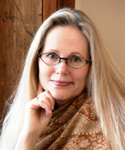
Juliet Rohde-Brown
Department Chair and Core Faculty, Pacifica Graduate Institute
Juliet Rohde-Brown, Ph.D. is the Chair for the Depth Psychology: Integrative Therapy and Healing Practices doctoral specialization program at Pacifica Graduate Institute. She has been teaching psychology in higher education venues for over 20 years. Her clinical doctoral internship was completed at the C.G. Jung Institute of Los Angeles and she has worked clinically in private practice and hospital settings. Before becoming a licensed clinical psychologist, she did integrative work as a hypnotherapist and trained in neuropsychological assessment and in-patient settings, among others. She is a board member with the nonprofit organizations, Tierra Sagrada and Restorative Justice Resources and serves as a mentor with the Spiritual Paths Foundation. She has presented on psychological and interspiritual topics internationally, led and co-led retreats and workshops, and her book is entitled Imagine Forgiveness. Her peer reviewed journal articles have been featured in such publications as the Journal of Humanistic Psychology, the Journal of Divorce and Remarriage, Sutra – The Thread: Journal for Research on Education, Psychology, Traditional Sciences and Systems, Health and Consciousness and Psychological Perspectives, and she has contributed book chapters to Probing the Boundaries Series: Vol. 172- Forgiveness: An interdisciplinary dialogue (Interdisciplinary Press), Humanistic Psychology and Diversity (Routledge), and “Like A Child Would Do”: A Multidisciplinary Approach to Childlikeness in Past and Current Societies (Universitas Press).
M.A./Ph.D. in Mythological Studies with Emphasis in Depth Psychology:
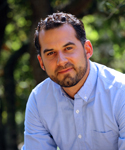
David M. Odorisio
Department Co-Chair and Associate Core Faculty, Pacifica Graduate Institute
David M. Odorisio, PhD, is Co-Chair and Associate Core Faculty in Pacifica’s Mythological Studies graduate degree program. David is editor of A New Gnosis: Comic Books, Comparative Mythology, and Depth Psychology (Palgrave Macmillan, 2022), Merton and Hinduism: The Yoga of the Heart (Fons Vitae, 2021), and co-editor of Depth Psychology and Mysticism (Palgrave Macmillan, 2018). He has published in Quadrant, Jung Journal, Philosophy East and West, The Journal of Transpersonal Psychology, and The International Journal of Transpersonal Studies, among other peer-reviewed journals. He currently teaches the following courses in the Mythological Studies program: Methods and Contemporary Issues in Religious Studies; Christian Traditions; Comic Books as Modern Mythology; and Dissertation Formulation.

Emily Lord-Kambitsch
Department C0-Chair and Associate Core Faculty, Pacifica Graduate Institute
Emily Lord-Kambitsch, Ph.D, is Co-Chair and an Associate Core Faculty member of the Mythological Studies Program. A scholar, poet-storyteller, and native of Santa Barbara, her lifelong exploration of classical mythology is rooted in the study of Greek and Latin language and literature. After completing a BA in Classics at UCSB, Emily received a Master’s degree from the University of Oxford, where her thesis focused on the healing of grief in Roman stoicism, and where she worked as a research assistant for the Oxford Emotions Project, a cross-disciplinary study of definitions of emotions in ancient Greece.
In 2016 Emily received her PhD in Classics at University College London (UCL). Her thesis examined emotions as an important mode for audience engagement with representations of antiquity in modern popular fiction, theatre, and cinema. The thesis has yielded articles in publications including the journal, Nineteenth Century Theatre and Film, and the collections, Rewriting the Ancient World: Greeks, Romans, Jews and Christians in Modern Popular Fiction (Brill, 2017) and Star Attractions: Twentieth-century Movie Magazines and Global Fandom (University of Iowa Press, 2019). Her current research traces the relationship between memory, longing, and selfhood in the voices of women from Greek tragedy.
A prize-winning poet and author of a poetic memoir, Western Yoga: A Field Report on Desertion and Deliverance (Bottlecap Press, 2023), Emily has ceaseless curiosity about nature, religious experience, Greco-Roman myth, memory, and the transmission of story and artifacts, personal and ancestral. Her commissioned writing was featured in the showcase, “Weaving Women’s Stories”, at London’s Being Human Festival in 2018, and has performed with Backbone Storytelling and at the Narrative Loft in Santa Barbara. She regularly co-facilitates a series of Mythic Movement workshops in Santa Barbara, combining elements of intuitive movement and guided visualization to invite participants’ embodied engagement with mythical themes and characters, and co-hosts a monthly community discussion on mythic/philosophical themes (Love, Frienship, Ritual, Renewal, Myth) at Wylde Works in downtown Santa Barbara.
Emily arrived at Pacifica after 8 years in the UK and a series of lectureships at UCL and UCSB, and at Pacifica she teaches courses in Greco-Roman myth, ritual studies, memoir and self-writing, research approaches, and dissertation formulation. She is passionate about supporting students’ connection with the perennial stories that call to them through academic, artistic, and personal lenses.

